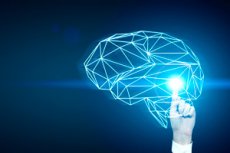Medical expert of the article
New publications
Individual differences in thinking: understanding the human mind
Last reviewed: 30.06.2025

All iLive content is medically reviewed or fact checked to ensure as much factual accuracy as possible.
We have strict sourcing guidelines and only link to reputable media sites, academic research institutions and, whenever possible, medically peer reviewed studies. Note that the numbers in parentheses ([1], [2], etc.) are clickable links to these studies.
If you feel that any of our content is inaccurate, out-of-date, or otherwise questionable, please select it and press Ctrl + Enter.

Thinking is a unique and complex process that differs from person to person. Individual differences in thinking determine how a person perceives the world, makes decisions, and solves problems. These characteristics are shaped by many factors, including genetic predispositions, social influences, education, and life experiences.
What are individual differences in thinking?
Individual differences in thinking are the unique ways in which individuals process information. This can include thinking speed, learning style, problem-solving ability, and creativity. They also include preferences for attention, memory and logical reasoning.
Factors influencing individual thinking patterns
Genetics
Genetic factors play an important role in cognitive development. They can determine the potential for intellectual ability and predisposition to certain types of thinking, such as analytical or creative thinking.
Education and training
Education has a significant impact on the development of thinking. A quality education can improve critical thinking, problem solving and analytical skills. It also promotes lifelong learning skills.
Life experience
Life experiences, including upbringing, cultural influences and personal experiences, shape a person's unique view of the world. It influences decision-making preferences and ways of solving problems.
Social interaction
Social interaction and communication with others can improve understanding and empathy, which is important for collective problem solving and teamwork.
Types of individual thinking
Analytical thinking
People with a predominantly analytical thinking style approach problems systematically, breaking them down and analyzing them logically.
Creative thinking
Creatively oriented people tend to use intuition and imagination to create new ideas and solutions.
Strategic thinking
This type of thinking involves planning and anticipating future events and outcomes, developing long-term plans and strategies.
Critical thinking
Critical thinking involves evaluating information, critically evaluating arguments, and being able to distinguish facts from opinions
Emotional thinking
Emotional thinking takes personal feelings and emotions into account in the decision-making process. People who predominantly use this style may make decisions based on intuition or "gut feeling," sometimes disregarding logic in favor of emotional gratification.
Systems thinking
Systems thinkers are able to see the big picture and understand the complex interrelationships in systems. They seek to understand how changes in one part of a system can affect other parts of the system.
Intuitive thinking
Intuitive thinking is the ability to understand things quickly without conscious reasoning. Intuitive thinkers often arrive at conclusions without going through the steps of formal logical inference.
Development of individual thinking characteristics
The development of thinking is an ongoing process that can be stimulated and improved. Some ways to develop individual thinking skills include:
Continuous learning
Learning new skills and knowledge can stimulate the brain and promote new patterns of thinking.
Critical thinking
Practice in critical thinking, such as analyzing sources of information and evaluating arguments, can improve the ability to analyze and evaluate information.
Problem solving
Active participation in problem solving can improve analytical and creative thinking skills.
Meditation and reflection
Quiet time for reflection can help you develop a deeper understanding of yourself and improve your intuitive thinking.
Social interaction
Talking to a diverse group of people can offer new perspectives and approaches to thinking.
Games and intellectual exercises
Games that require strategic planning and logical reasoning can improve these aspects of thinking.
Techniques to improve individual thinking
Understanding and improving individual thinking styles can greatly enhance personal effectiveness and the ability to adapt to different situations. Here are some additional techniques:
Journaling
Writing is a great way to develop deep thinking and reflection. Keeping a personal diary can help to reflect on inner processes and emotions, facilitating self-understanding and the development of emotional intelligence.
Mental models
Mastering and applying different mental models can help to better understand complex situations and improve decision-making. Learning models such as feedback loops, Pareto principles and root cause thinking can enrich cognitive processes.
Visualization
Visualization techniques such as a mind map or Venn diagrams can help in structuring thoughts and analyzing the relationships between different concepts or ideas.
Learners' questions
Asking instructional questions - for example, "What can I learn from this?" or "How does this relate to what I already know?" - can stimulate critical and analytical thinking.
Role-playing games
Participating in role-playing and simulations can help develop empathy and understanding of different perspectives, improving social interaction and communication skills.
Study of philosophy and logic
Classes in philosophy and formal logic can improve the ability to analyze arguments and reasoning, as well as foster a deeper understanding of abstract concepts.
Learning through experience
Practical experience and experimentation can be valuable for the development of adaptive thinking. Direct interaction with different situations allows theoretical knowledge to be put into practice.
Individual thinking patterns are shaped by many factors, including education, environment, experience, and personal preferences. Working to develop these characteristics requires self-awareness and deliberate effort. Consciously applying various techniques and approaches can improve not only individual thinking, but also the overall ability to learn and adapt. Ultimately, this leads to a more enriched and meaningful life where everyone can better understand themselves and the world around them.
Individual differences in thinking determine the unique way each person interacts with the world and solves problems. Understanding these characteristics can help with personal development, improve problem-solving skills, and facilitate interpersonal interactions. Stimulating and developing different thinking styles can benefit not only the individual, but also society as a whole by promoting greater understanding and cooperation between people.

